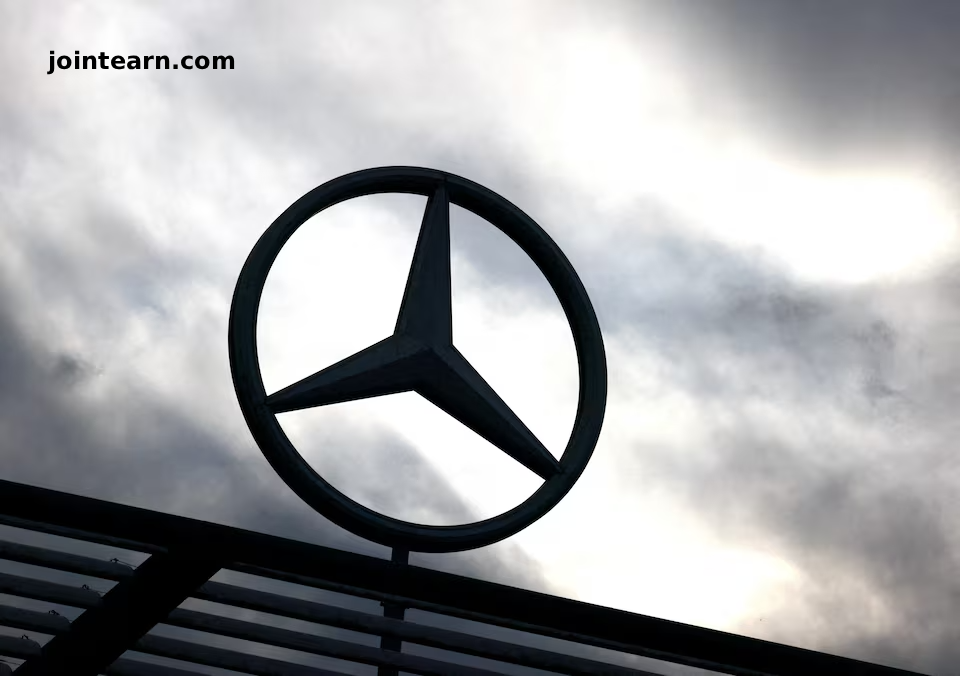
Mercedes-Benz Embraces “Animal Spirit” to Endure Market Evolution
BERLIN/FRANKFURT, Oct. 29, 2025 — Facing intensifying global headwinds, Mercedes-Benz Group AG CEO Ola Kaellenius urged investors and industry peers to adopt what he called an “animal spirit” to survive the fierce battles raging in the world’s largest car markets — China and the United States.
“The animal that is able to adapt is the one that survives and thrives in evolution,” Kaellenius said during a presentation to investors after the automaker released its third-quarter results. “The hyper-competition in China is not going away anytime soon.”
His remarks underscore a rapidly changing landscape for global carmakers, where electric vehicle (EV) price wars in China and belt-tightening consumers in the U.S. are forcing even luxury brands to rethink pricing, innovation, and market strategies.
China’s Fierce Market Forces Luxury Carmakers to Adapt
Mercedes-Benz’s performance in China, traditionally one of its strongest markets, suffered a significant setback in the third quarter. The company reported a 27% year-on-year decline in China sales, mirroring similar declines by rivals Volkswagen, Porsche, and BMW.
“The market situation in the premium and luxury segment in China remained tense, with foreign manufacturers in particular reporting significant declines in unit sales,” Mercedes said in its earnings statement.
Analysts attribute the drop to intense EV competition, led by domestic giants like BYD, NIO, and Xpeng, as well as a broader economic slowdown and waning consumer confidence in China.
To stay competitive, Mercedes-Benz is accelerating the rollout of its next-generation electric and hybrid vehicles, while simultaneously localizing production and expanding partnerships with Chinese technology firms such as Wingtech Technology Co. Ltd.
U.S. Market Faces Consumer Slowdown
While the U.S. remains a key market for Mercedes-Benz, sales fell 17% in the third quarter, impacted by both trade tariffs and consumer restraint amid economic uncertainty and high interest rates.
American consumers, particularly in the luxury segment, are showing more caution in big-ticket purchases, pressuring automakers to offer more financing options, incentives, and feature-rich models to maintain demand.
Kaellenius acknowledged the challenge, emphasizing that Mercedes must remain flexible in its operations to withstand economic cycles and shifting consumer behavior.
“We must be able to pivot — whether it’s toward EVs, hybrids, or traditional engines — depending on the demand dynamics,” he said.
Europe Offers Modest Relief
Amid struggles in Asia and North America, European sales rose slightly, providing a modest cushion for Mercedes-Benz’s overall performance. Stronger demand in Germany and the Nordic markets, coupled with stable pricing in the region, helped the automaker exceed global auto margin expectations for the quarter.
Despite the overall resilience, Kaellenius warned that continued macroeconomic pressures, including inflation and supply chain constraints, remain a concern for 2026.
Mercedes-Benz’s Strategy for 2026 and Beyond
The company is positioning itself for a strategic transformation that blends luxury with sustainability. Key pillars of this transformation include:
- Expanding EV production under its EQ sub-brand while maintaining profitability in the internal combustion engine (ICE) lineup.
- Leveraging partnerships with technology and semiconductor firms to strengthen supply chain resilience.
- Investing in AI and smart manufacturing, using data analytics to improve production efficiency.
- Deepening its presence in China through localized research, development, and innovation hubs.
Kaellenius highlighted that survival in today’s global automotive market requires the agility and instincts of nature itself.
“In this era of hyper-competition and transformation, we must be like animals — fast, adaptive, and ready to evolve,” he said.
The Road Ahead
As China’s EV race heats up and U.S. consumers pull back, Mercedes-Benz faces a dual challenge of maintaining luxury appeal while adapting to new market realities.
Industry experts say the brand’s ability to combine innovation, strategic partnerships, and operational flexibility will determine how effectively it can retain its leadership in the global luxury automotive sector.
Kaellenius’ rallying cry for “animal spirit” reflects not just a survival instinct — but Mercedes-Benz’s vision to remain at the forefront of an auto industry undergoing its most profound evolution in a century.


Leave a Reply